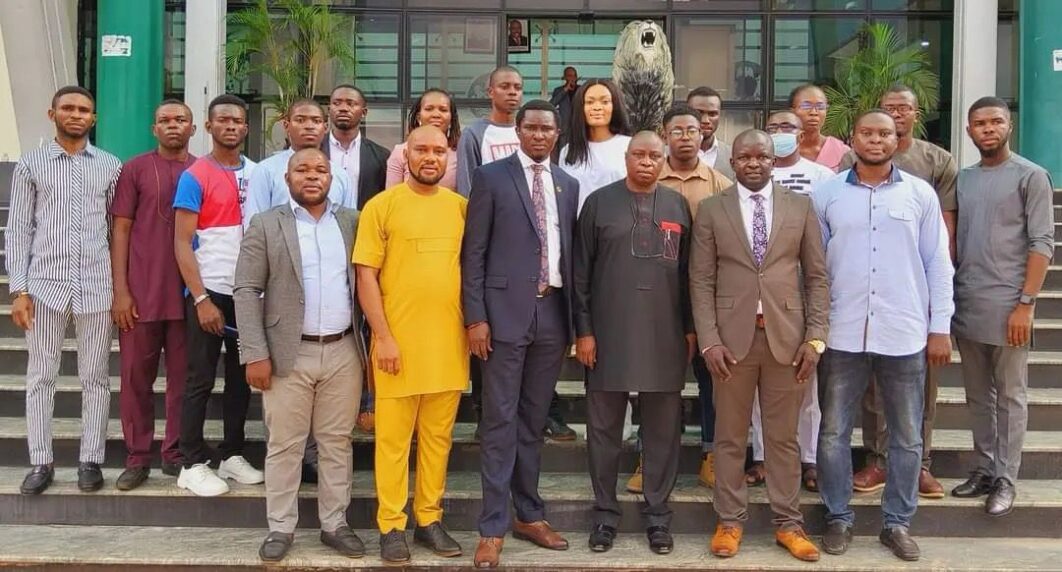
The administration of Governor Ifeanyi Ugwuanyi of Enugu State has taken a significant step towards enhancing educational opportunities for its indigenes. Through the State Scholarship Board, the government has secured fully funded scholarships for 28 postgraduate students to pursue their studies in Europe and America. This initiative marks a continuation of the state’s commitment to youth empowerment and academic excellence.
Levi Abonyi, Executive Secretary of the Enugu State Scholarship Board, revealed that this scholarship mentorship program was designed to expose Enugu students to global funding opportunities. The program, which received approval from the State Executive Council, has now produced 46 fully-funded Masters and PhD students from the state since its inception in October 2020.
The scholarship covers various expenses, including visa costs, flight tickets, and initial living expenses, with each student receiving one million naira (₦1,000,000) to support their journey. Governor Ugwuanyi’s administration aims to create a generation of intellectuals equipped to drive economic growth and compete globally.
In a related development, the University of Nigeria, Nsukka (UNN) has seen one of their lecturers benefit from this scholarship program by the Enugu State Government, highlighting the institution’s academic prowess. Mr. Cosmas Chinweike Eze is one of the recipients of the Enugu State Scholarship, and an Assistant Lecturer in Natural Science Unit &Pure and Industrial Chemistry Department, at UNN.
Mr. Eze will be pursuing postgraduate Studies at North Carolina State University on his research that advocates for innovations in drug discovery to address global health challenges, especially those related to antimicrobial resistance (AMR). His research employs an integrated approach to drug discovery- leveraging both experimental and computational techniques to uncover potent active agents with unique mechanism of action (MoA) for development as therapeutics. Mr. Eze’s academic journey reflects his relentless pursuit of excellence, career development, and innovative ideas to tackle societal problems.
Drug discovery process requires expertise in multiple disciplines such as organic, medicinal, and computational chemistry, toxicology, biology, pharmacology, and clinical science. Mr. Eze’s research is a challenging, repeatedly changing process requiring navigating complex patient needs, competition, and finance aspects.
However, the reward is titanic- the opportunity to bring life-saving treatments to patients. One of the strategies to expedite drug discovery process is to utilise the technique of computer-aided drug design (CADD). According to industry experts, almost 30 per cent of the total cost and time invested in developing a new drug can be saved by utilising CADD techniques. The strategy has already successfully expedited drug discovery through virtual library screening, molecular simulation, and molecular dynamics. Many success stories include, but are not limited to Aliskiren, Boceprevir, Captopril, Dorzolamide, Nolatrexed, Oseltamivir, Rupintrivir, Saquinavir and Zanamivir.
CADD can be combined with wet-lab techniques to unveil the MoA of drug resistance, enabling robust design of potent compounds. Notably, CADD methods can produce an atomic level structure-activity relationship (SAR) used to facilitate the drug design process thereby minimizing time and costs.
To address the impacts of AMR, a global response is needed that ranks resource allocation to a robust development of pharmaceuticals, access to most affected areas, surveillance system and vaccine distribution to vulnerable populations. This is the area of research that Mr. Eze would be pursuing in the United States. Emerging infectious diseases (EID) such as AIDS, SARS, Ebola, drug-resistant bacteria and fungi constitute a prime pitfall to global health. EIDs present a severe load on global economies and public health.
Antimicrobial resistance (AMR) constitutes a greater portion of EIDs reported in the second half of the 20th century. AMR is a manifestation of the misuse of antibiotics for treating, preventing, or controlling infections in humans and animals. AMR occurs when microbes invoke genetic changes and become resistant to antimicrobial drugs, making it harder to treat infections and enhancing the danger of disease spread, severe illness, and death.
The development of new antibiotics with distinct mechanisms of action targeting drug-resistant species is vital to undertake in the wake of growing health challenges posed by AMR. Scientists are vigorously seeking new treatment options to fight these resilient pathogens. One of the hallmarks of the University of Nigeria, Nsukka, is sustained effort to address societal problems through research.
The university boosts some of the country’s best intellectuals, constantly pushing the boundaries in their field through research that leads to innovations. UNN, long renowned for its intellectual prowess, continues to push the boundaries of scientific research. The university’s dedication to fostering innovation is evident in Mr. Eze’s work, which contributes to the global scientific community and upholds UNN’s tradition of excellence. His research is a testament to the institution’s role in nurturing talent that can tackle world problems head-on.
Mr. Eze’s work represents a significant step forward in our fight against antimicrobial resistance, said a spokesperson for the university. His integration of advanced computational methods with traditional experimental techniques is precisely the kind of innovative thinking needed to address this global health crisis.
The implications of Mr. Eze’s research extend far beyond the laboratory. As AMR threatens public health systems worldwide, developing new antibiotics becomes increasingly crucial. His contributions could potentially lead to breakthrough treatments, offering new hope to patients battling drug-resistant infections.This latest achievement further cements UNN’s position as a hub of scientific innovation in Nigeria. It underscores the university’s commitment to producing research that advances academic knowledge and has tangible benefits for society at large.
As the scientific community eagerly awaits further developments from Mr. Eze’sresearch findings, his work inspires aspiring researchers across Nigeria and beyond. It demonstrates that Nigerian scientists can significantly contribute to solving global health challenges with dedication, innovative thinking, and institutional support. The University of Nigeria, Nsukka continues to stand proud, knowing that its researchers, like Mr. Eze, are at the forefront of scientific discovery, working tirelessly to create a healthier future for all.






